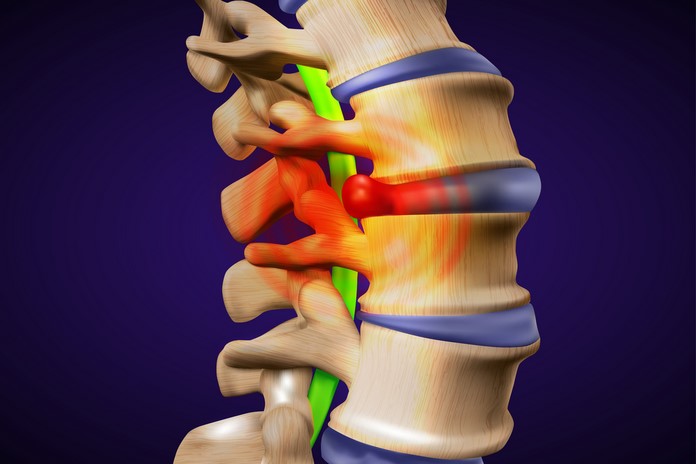Herniated discs

Causes
The most common cause of a herniated disc is an age-related wear of the spinal structures. It is a common consequence of a degenerative disc disease.
Another common cause not related to long-standing degenerative disc disease is a traumatic event. For example a fall from a considerable height can cause a herniated disc.
Risk factors
This spinal disease is more common in patients with the following characteristics:
Males, especially those between 20 and 50 years old
Lifting heavy weights, especially if you’re not protecting your spine
Overweight and obesity
Strenuous sports activities or strenuous jobs
A sedentary lifestyle or sitting for a very long time, especially in the car
Smoking
Symptoms
Sharp pain located in the buttocks and traveling down to the leg
Tingling or numbness on the lower extremities
Sensation of weakness on the lower extremities
Loss of bowel or bladder control. In this case, the patient needs to have urgent medical examination
Diagnosis
First of all, these patients need a very detailed neurological exam to evaluate muscle weakness, loss of sensation, walking, and reflexes. There’s a predictive test known as SLR or straight leg raise test in which the doctor lifts your leg when you’re lying on your back. This test is excellent to detect and predict disc herniation.
Imaging studies include an MRI to evaluate the spinal nerves and how they are involved in the disease. In some cases, a CT scan or CT myelogram are used instead of an MRI.
Treatment
In herniated disc, rest is fundamental to recover from the disease. It is also important to use non-steroidal anti-inflammatory drugs such as naproxen or ibuprofen. Along with physical therapy, they usually lead to significant improvements. When pain symptoms are difficult to handle, doctors may recommend epidural steroid injections with a cortisone-like drug to relieve pain. In other cases, a surgical procedure may also be recommended, in which the herniated part of the disc is taken out.
Home remedies
If you’re at home and want to control the symptoms of a herniated disc, you can try a combination of the following recommendations:
Apply ice packs and heating packs interchangeably in the affected area
Stop wearing high wheels and avoid lifting heavy objects to minimize the pressure on your spine
Adopt a good posture while sitting or standing up
Exercise as recommended by your physical therapist
